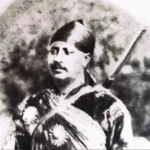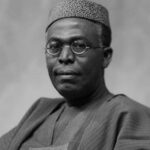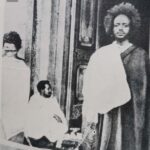ASAMENI
- 3 Min Read
Asameni (who flourished in the late 17th century) captured Christiansborg Castle from the Danes, became its governor in 1693-94, and played an important part in the establishment of the state of Akwamu (in the southeast of what is now Ghana) as a coastal power during the later part of the 17th century.
Tradition has made Asameni a confidant of King Ansa Sasraku II of Akwamu, his uncle, whose special ambassador to the coast he became. He had been a cook for the English, and had learned European languages as well as the best way of dealing with Europeans. He became a commission agent, and soon won the confidence of the European traders to whom he brought traders from the interior. When, therefore, the king of Akwamu decided to capture the castle and appropriate its merchandise for himself, he entrusted the task to Asameni.
He used his reputation as a commission agent to gain admission into the castle with 80 traders, ostensibly to trade in ivory and gold. With these men he overpowered the Danish garrison, which had been reduced to 25 men by death and disease. After capturing Christiansborg in June 1693, Asameni secured for the king of Akwamu considerable merchandise as well as 50 marks of gold, with a total value of about £ 7,000 sterling. For his services he was appointed governor of Christiansborg.
On becoming governor, Asameni replaced the Danish flag with that of Akwamu, which had a white background on which was imposed the figure of an African warrior with a scimitar. He then proceeded to trade with the English, French, and Dutch interlopers, whom the Danes had previously excluded.
He imitated the style of life of the Danish governors by dressing in his predecessor’s uniform, and insisting on being accorded the same marks of respect. He entertained his European fellow-governors and visiting sea-captains lavishly, and was especially pleased with the castle’s canon. Two hundred cannon salvoes were fired during the occasion on which he dined with three Englishmen, Captain Philipps, and Messrs Buckridge and Bloome, in May 1694. After less than a year as governor, a Danish mission of two ships arrived on the coast in about May 1694, after which Basua, the powerful claimant to the Akwamu throne, restored the fort to the Danes for a fee of about 50 gold marks (about £ 1,600 sterling).
Asameni then retired with some of his men to establish his own trading post at Labadi, just east of Christiansborg. But pressure from the Danes, who were opposed to the establishment of his depot there, compelled him to move a few miles further east to Great Ningo (now the village of Nungoa, or Old Nigo). From here he later returned to Nyanawase, the Akwamu capital, about 20 mi (32 km) northwest of Accra. He was created amanguahene (supreme captain of the youth in assembly) in 1701, and became very influential in the social and political life of Akwamu until the time of his death. His heirs have to this day been high-ranking members of the court of the Akwamuhene (ruler of Akwamu).
As a result of his exploits the Akwamu gained money and goods to a total value of about £ 8,600, which helped them in their wars of expansion, which extended as far east as Ouidah (Whydah) in Dahomey, then the main port of the kingdom of Abomey, which they reached in 1702. Asameni’s claim to fame, however, rests on his governorship of Christiansborg Castle, the keys of which are still in the possession of the Akwamuhene.
MICHAEL P. ANSAH






